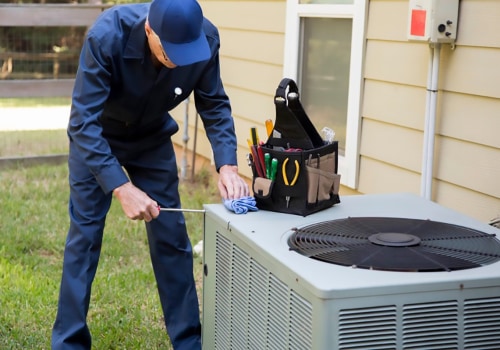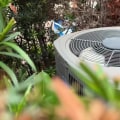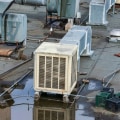When it comes to heating, ventilation, and air conditioning (HVAC), there are a variety of options available. Depending on the size of the building, the climate, and the budget, different types of HVAC systems can be used. In this article, we'll explore the two main types of HVAC systems: central and local systems. We'll also discuss electric heat pumps, dual-fuel hybrid heating systems, ductless minisplits, and geothermal systems.
Central HVAC systems are designed to serve multiple areas in a building. These systems are usually located far from the building and require distribution devices to carry the air to each area. Air source heat pumps are becoming increasingly popular in residential HVAC markets due to their efficiency and cost-effectiveness. Electric heat pumps are a great option if electricity is the only energy source available. Heat pumps work by moving heat instead of generating it from a fuel source.
This process allows for more efficient performance, especially at moderate temperatures. Heat pumps can also be used for air conditioning during the summer months. A combination of furnace and heat pump is known as a dual-fuel hybrid heating system. During mild weather, the heat pump keeps your home comfortable while generating low heating bills. When temperatures drop below freezing, the gas furnace provides additional heat to avoid resorting to an electric resistance heater. Ductless minisplits have become increasingly popular in recent years.
This type of system is a type of heat pump that can provide heating and cooling all year round. Wall-mounted units have a built-in air controller which eliminates the need for any duct network.
Geothermal
systems are the most energy efficient and environmentally friendly air conditioning system available. Like air-source heat pumps, geothermal systems work by moving heat instead of generating it from an energy source. Central air conditioners are perhaps the most common type of residential HVAC system after wall and window air conditioners. These systems use a network of ducts and a fan to carry cold air around the house.Outside the house, a compressor squeezes out gaseous refrigerant which is then converted back into gas and heated before being expelled through an exhaust from the system. The biggest drawback of central air conditioners is that they require an additional heat source such as an oven or furnace. Most residential furnaces use natural gas or oil to heat a series of fins called a heat exchanger, although some also use propane. A blower motor forces air through the heat exchanger to increase its temperature before passing through a network of ducts throughout the house. The lifespan of different types of HVAC systems varies depending on the type of system you're talking about. Central air conditioners usually last 15 to 20 years while heat pumps last 10 to 15 years.
Natural gas ovens or electric ovens can last 20 to 25 years with regular maintenance while window air conditioners and wall-mounted air conditioning units have an average lifespan of about 10 years. Split heating and cooling systems are known to be the most common types of HVAC systems. As the name suggests, it is divided into two separate units, one for heating and one for cooling. If regular services are neglected, the lifespan and efficiency of the air conditioning system are reduced, leading to costly repairs and higher utility bills. Whether you're installing a new HVAC system or need a temporary temperature control solution for your workplace, there's an HVAC system that can meet your needs. If you need help deciding between the types of HVAC systems listed above, an HVAC specialist or contractor can help you find a compatible option for your building.











